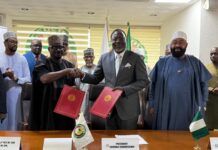Sun King has secured an $80 million (over N80 billion) local currency debt facility with support from Stanbic IBTC Bank and the International Finance Corporation (IFC) to accelerate off-grid solar expansion in Nigeria. The financing will help millions of Nigerians access clean, affordable electricity through Sun King’s pay-as-you-go model.
Structured entirely in Naira to reduce foreign exchange risk, the facility includes a $50 million contribution from IFC—half of which comes from the Canada-IFC Africa Renewable Energy Program—and will enable Sun King to offer flexible payment options to households and small businesses, allowing them to repay in small daily, weekly, or monthly instalments.
The partnership with Stanbic IBTC Bank, a subsidiary of Standard Bank Group, reflects growing private sector involvement in addressing Nigeria’s persistent energy gap. Roughly 40% of the population lacks access to grid electricity, creating strong demand for alternative power solutions.
Sun King, one of the world’s largest off-grid solar companies, already has a presence in over 40 countries and has sold more than 27 million solar products. Its solar home systems—ranging from multi-room lighting to rooftop setups—are designed for affordability and reliability. The company has disbursed over $1.2 billion in solar loans across Africa and operates a network of 29,500 sales agents.
In Nigeria, the new facility will support deeper market penetration, especially in rural and underserved areas. The investment aligns with Mission 300, a joint initiative launched in 2025 with the African Development Bank to provide electricity to 300 million people in Sub-Saharan Africa by 2030.
Dahlia Khalifa, IFC’s Regional Director for Central Africa and Anglophone West Africa, said the project tackles energy poverty at scale. “This investment enables scalable local-currency solutions that empower households and businesses with clean, affordable solar power,” she said.
Anish Thakkar, Co-Founder of Sun King, described the deal as a model for how structured financing can unlock access to essential services. “Off-grid solar is the fastest path to universal electrification across Africa. This facility helps us dismantle affordability barriers at scale,” he said.
Stanbic IBTC views the deal as a transformative step in Nigeria’s energy landscape. “This facility will empower millions with access to reliable solar power who would otherwise struggle,” said Oladele Sotubo, CEO of Stanbic IBTC Capital. “It’s a powerful example of how finance can drive inclusive growth.”
The agreement also complements public sector efforts such as Nigeria’s Distributed Access through Renewable Energy Scale-up (DARES) program, which aims to reduce solar costs through results-based subsidies.
The facility was structured under Sun King’s Sustainable Financing Framework, which has received a “Very Good” sustainability rating from Moody’s, reflecting its contribution to climate and development goals.














